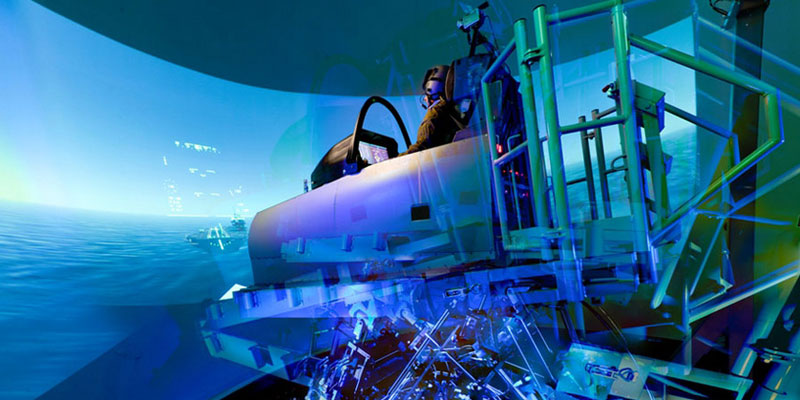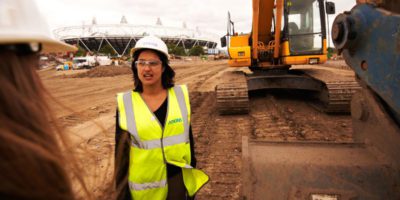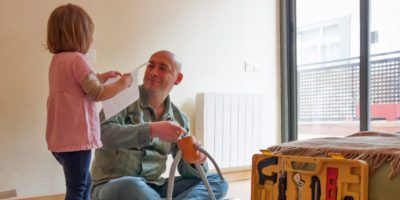Laura Hoang is an engineer, working for BAE Systems, who attained a Bachelor’s Degree in Systems Engineering at Loughborough University and was awarded the Royal Aeronautical Society’s Aero MSc bursary to study for a Master’s Degree in Advanced Systems Engineering. Outside of her day job, she is an active STEM (science / technology / engineering / mathematics) Ambassador and is committed to encouraging more young people to consider careers in STEM. She is a member of the Royal Aeronautical Society’s Young Persons’ Committee and also is part of the BAE Systems Diversity and Inclusion Steering Group.

“…Although I was born in the UK, I come from quite a traditional Asian family and engineering wasn’t ever really considered a career choice, especially ‘for a girl’. However, this didn’t stop me from achieving my goals – I feel that it is important to distinguish your own goals from those expected of you by those you depend on for support, however difficult it might be…”
“Do you fix boilers?”
Whilst getting involved in STEM careers’ and other school events, some of the younger generation don’t fully understand what an engineer does; they have only really been exposed to the types of engineers who are called round to fix problems around the house, such as boilers. Society’s image of an engineer needs to change, and although it is improving, more could be done; parents and teachers need to be educated in order to educate.
There also needs to be an understanding that there are many types of engineering, many different types of engineering industries, and many different applications of engineering knowledge and skill. Engineering is such a general term, and it covers such a diverse range of careers.
Multidisciplinary approach becoming crucial
One type of engineering, systems engineering is becoming more well-known, especially in the aerospace sector. As technology advances, systems are becoming more and more complex, the need for a multidisciplinary approach is becoming crucial to analyse and design for systems safety, efficiency and performance.
I currently work in the Human Factors Engineering team – let’s not forget that everything we design is used by a person. In order to make systems more effective and more efficient, we need to design the system so that the human can use it effectively and efficiently.
There are lots of roles a systems engineer can take on – I have had placements looking at the electrical power system and fuel system for a jet fighter aircraft, as well as training simulators and ground and air test equipment.
“Engineering probably isn’t for you.”
Although I was born in the UK, I come from quite a traditional Asian family and engineering wasn’t ever really considered a career choice, especially ‘for a girl’. However, this didn’t stop me from achieving my goals – I feel that it is important to distinguish your own goals from those expected of you by those you depend on for support, however difficult it might be. This is one of the key drivers in my passion for promoting STEM subjects and careers.
At school, when it came to choosing a career path, I was unsure what I wanted to do; I knew I enjoyed Science and Mathematics but I didn’t know what to study at university. Being at a single sex school didn’t help either – engineering was a relatively unknown area of expertise whilst I was a pupil there.
However, the turning point was when a new Physics teacher joined my school and brought with him the Engineering Education Scheme, which is run by the Engineering Development Trust (EDT). This opened my eyes to the world of Engineering – a chance to apply my love of Science and Mathematics to real world problems, and it was then that I realised that Engineering was definitely for me!
“You were only chosen because you’re female / ethnic.”
It is greatly discouraging to think about how many times I have heard this, from getting into university, job offers, and opportunities to be involved in events or initiatives within work, education and personal life.
It’s one of the reasons why I am particularly interested in the company’s diversity and inclusion (D&I) initiatives and why I am part of the company’s D&I steering group. Most people think they understand what D&I stands for, but many misinterpret it and it can lead to D&I being thought of in a negative light.
Diversity and inclusion does not mean categorising and labelling people
D&I does not mean ‘positive discrimination’; nor does it mean categorising and labelling people and meeting quotas. Yes, in the business world, organisations aim to have diverse teams – studies have shown that this makes for more effective working. But what good is creating a diverse team if the team members don’t feel that they are welcomed, comfortable and valued?
Comments like the above go against creating an inclusive culture and overcoming this attitude is a massive challenge we, as a society, face. In contradiction to this, in each team that I have worked in, I have felt valued and that I was ‘chosen’ for roles based on my attitude, work ethic and achievements. Shouldn’t we all?
“You shouldn’t speak your mind; it’s rude.”
Centuries ago, it may have been rude, especially for a girl or woman, to speak your mind, or even speak when not spoken to. In the modern day, this is not (or at least, should not) be the case.
Nowadays, sharing information is key to success – in both industry and society. Think about the vast amounts of online articles and blogs we have access to, where we can read both fact and opinion on every topic imaginable. I write a blog for the BAE Systems’ intranet site; I don’t think that it is rude to have an opinion and share it – it is possible to be controversial but not offensive, forward, but not aggressive, and able to speak up and convey a powerful message but not be rude.
Myths busted?
I feel that it is important to recognise that the image of STEM careers isn’t always accurate, and this needs to change in order for society to understand how interesting and diverse careers in STEM can be, and that anyone can do it if they are inspired to do so. I hope that one day, no one will hear those comments highlighted above – and I hope that day comes soon.
Find out more about the bursary here:
http://www.raeng.org.uk/grants-and-prizes/schemes-for-students/aero-msc-bursary-scheme
Here’s how to get involved with the Royal Aeronautical Society for young members:
http://aerosociety.com/About-Us/specgroups/Young-Members/YPN
http://www.baesystems.com/careers-rzz/careers-in-the-uk
https://twitter.com/baes_careersuk
https://www.facebook.com/BAESystemsplc
https://www.youtube.com/user/BAESystemsplc





